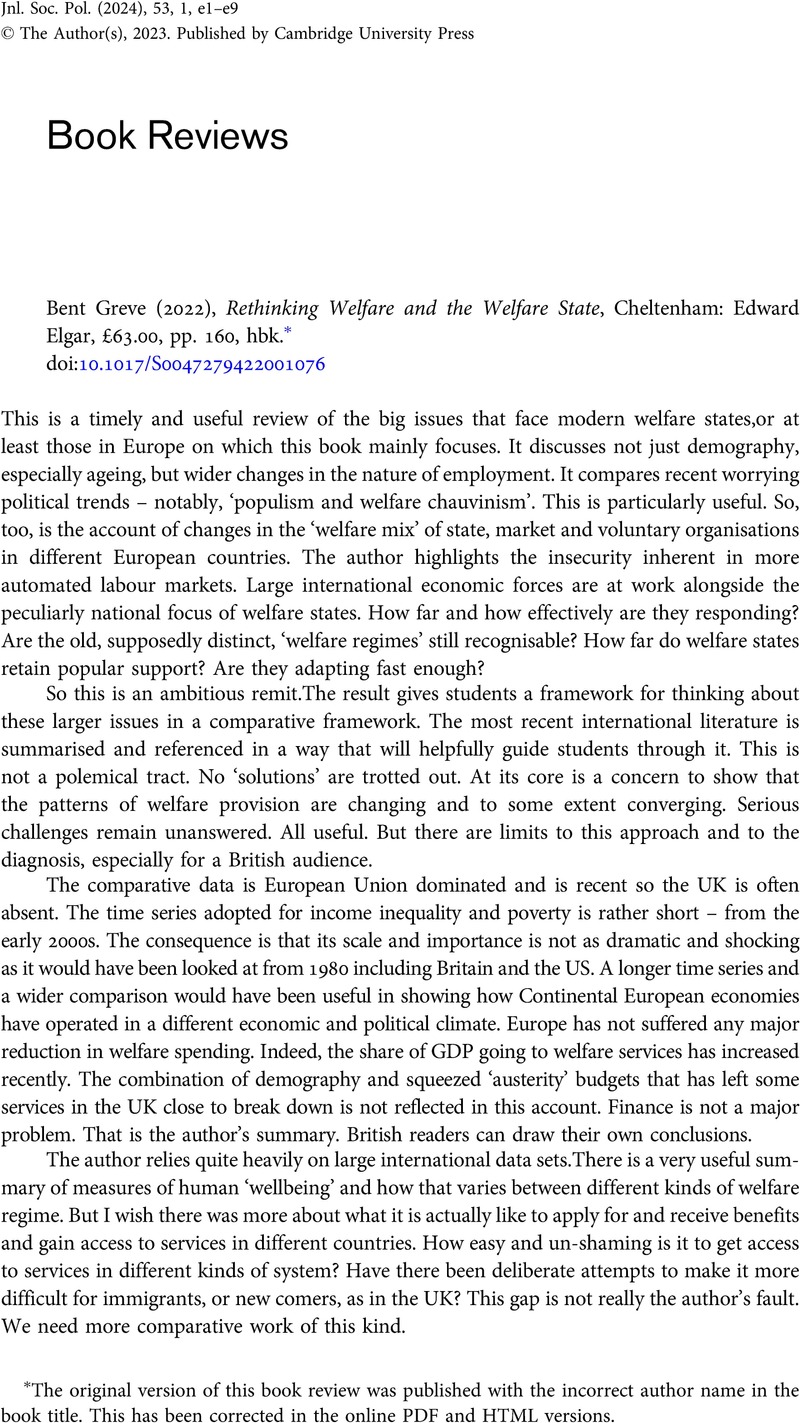No CrossRef data available.
Published online by Cambridge University Press: 26 June 2023

The original version of this book review was published with the incorrect author name in the book title. This has been corrected in the online PDF and HTML versions.
Please note a has been issued for this article.